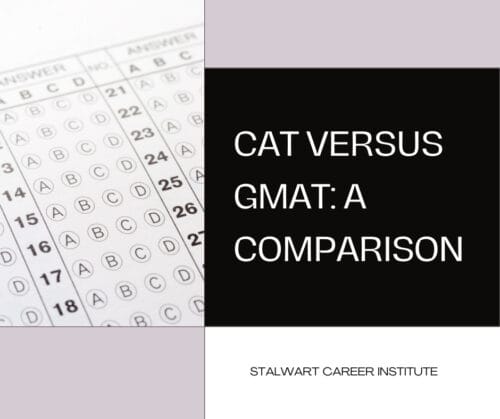IELTS Exam: The Ultimate Guide for International Students
The International English Language Testing System (IELTS) is one of the most widely recognized English language proficiency exams for non-native speakers. It is accepted by thousands of institutions worldwide, including universities, employers, immigration authorities, and professional bodies in Australia, Canada, New Zealand, the UK, and the USA.
Whether you are applying for a university abroad, seeking job opportunities, or looking to migrate, the IELTS can be your key to achieving those goals. In this guide, we’ll explore the IELTS exam structure, scoring system, registration process, preparation strategies, and a list of top universities that accept IELTS scores.
What is the IELTS Exam?
The IELTS is a standardized test designed to evaluate the English language proficiency of non-native English speakers. It assesses your ability to communicate effectively in listening, reading, writing, and speaking English.
The test is administered by the British Council, IDP: IELTS Australia, and Cambridge Assessment English. There are two main versions of the test:
- IELTS Academic: Designed for individuals applying for higher education or professional registration in an English-speaking environment.
- IELTS General Training: Suitable for those planning to migrate to an English-speaking country (like Australia, Canada, New Zealand, or the UK) or for those seeking work experience.
Why Take the IELTS?
Taking the IELTS offers several advantages for students and professionals alike:
- Global Recognition: IELTS is accepted by more than 10,000 institutions worldwide, including universities, corporations, and immigration authorities.
- Study Abroad: If you’re planning to pursue a degree or diploma abroad, IELTS is required by most English-speaking universities.
- Immigration: IELTS is a key requirement for immigration to countries like Canada, Australia, New Zealand, and the UK.
- Job Opportunities: Many employers use IELTS scores as part of their recruitment process, especially in global companies.
IELTS Exam Structure
The IELTS test assesses your English skills in four sections: Listening, Reading, Writing, and Speaking. You’ll take the Listening, Reading, and Writing tests on the same day, while the Speaking test may be conducted on a different day, depending on your test center.
1. Listening (30 minutes)
- Format: 4 sections, with a total of 40 questions.
- Content: You’ll listen to recordings of monologues and conversations on different topics. You must answer multiple-choice questions, complete sentences, or fill in information.
- Skills Tested: Listening for specific information, understanding main ideas, and following a conversation.
- Scoring: Scaled from 0 to 9.
2. Reading (60 minutes)
- Format: 3 sections, 40 questions in total.
- Academic Test: Texts are taken from books, journals, magazines, and newspapers.
- General Training Test: Texts are taken from everyday materials like advertisements, guides, or notices.
- Skills Tested: Ability to read for gist, detail, inference, and understanding the writer’s opinion or attitude.
- Scoring: Scaled from 0 to 9.
3. Writing (60 minutes)
- Format: 2 tasks.
- Task 1 (Academic): Describe or summarize visual information (graphs, charts, diagrams, etc.).
- Task 1 (General Training): Write a letter (formal, semi-formal, or personal).
- Task 2: Write an essay in response to a point of view, argument, or problem.
- Skills Tested: Ability to organize ideas clearly, use a range of vocabulary and grammar, and write coherently.
- Scoring: Scaled from 0 to 9.
4. Speaking (11-14 minutes)
- Format: Face-to-face interview with an examiner.
- Part 1: General questions about yourself and familiar topics (e.g., home, work, family).
- Part 2: You’ll be given a task card and 1 minute to prepare, followed by speaking for 1-2 minutes.
- Part 3: A more in-depth discussion related to Part 2’s topic.
- Skills Tested: Fluency, coherence, pronunciation, lexical resource, and grammatical range.
- Scoring: Scaled from 0 to 9.
IELTS Scoring System
The IELTS is scored on a band scale of 0 to 9. You will receive an individual band score for each section (Listening, Reading, Writing, and Speaking), and an overall band score, which is the average of the four sections.
- Band 9: Expert user
- Band 8: Very good user
- Band 7: Good user
- Band 6: Competent user
- Band 5: Modest user
- Band 4: Limited user
- Band 3: Extremely limited user
- Band 2: Intermittent user
- Band 1: Non-user
- Band 0: Did not attempt the test
Most universities and immigration authorities require a minimum overall band score of 6.0 to 7.5 depending on the institution or country.
IELTS Eligibility
There are no specific eligibility criteria for taking the IELTS exam. However, it is recommended for individuals who:
- Plan to study or work in English-speaking countries.
- Seek immigration to countries like Canada, Australia, or the UK.
- Are over 16 years of age, as younger candidates are less likely to meet the necessary language proficiency levels.
IELTS Registration Process
Registering for the IELTS exam is simple. Follow these steps:
- Visit the Official Website: Go to the official IELTS registration portal.
- Select Test Type: Choose between IELTS Academic or IELTS General Training based on your purpose.
- Choose Test Date and Location: Select a convenient date and test center location from the available options.
- Pay the Fee: The test fee is typically around USD 225 but may vary by location.
- Receive Confirmation: Once your registration is complete, you’ll receive a confirmation email with the test details.
IELTS Syllabus Overview
Here’s a more detailed look at the topics covered in each section:
Listening
- Everyday Situations: Conversations in social contexts.
- Academic Topics: Lectures or discussions related to academic subjects.
- Monologues and Dialogues: Answer questions based on audio recordings.
Reading
- Academic: Passages from academic sources, such as journals or textbooks.
- General Training: Texts from magazines, advertisements, guides, and notices.
Writing
- Task 1 (Academic): Description of visual data (charts, graphs).
- Task 1 (General): Formal and informal letters.
- Task 2: Essay writing on social issues, opinions, or debates.
Speaking
- Part 1: General introduction and personal questions.
- Part 2: Individual speech based on a cue card.
- Part 3: In-depth discussion on a related topic.
How to Prepare for the IELTS Exam
1. Familiarize Yourself with the Test Format
Understanding the format and types of questions is crucial to scoring well. Use official resources to get a feel for each section.
2. Create a Study Schedule
- Set a Goal: Decide your target band score based on the requirements of the universities or institutions you’re applying to.
- Daily Practice: Spend time every day improving your listening, reading, writing, and speaking skills.
3. Use Official IELTS Study Materials
- IELTS Official Practice Materials: These are the most reliable resources to practice real IELTS questions.
- IELTS Practice Tests: Take mock tests to simulate the actual exam experience.
- Stalwart Career Institute: We offer IELTS preparation courses where you can receive expert guidance on improving your skills in all four areas.
4. Practice Speaking English Regularly
Engage in conversations with native or fluent English speakers. Use podcasts, TV shows, and news channels to improve your fluency and pronunciation.
5. Focus on Time Management
The IELTS is a timed test, so practicing under timed conditions will help you manage your time efficiently during the exam.
Colleges Accepting IELTS Scores
IELTS scores are accepted by over 10,000 institutions worldwide. Below are some of the top universities that accept IELTS scores for admission:
Top Global Universities
- Harvard University (USA)
- Stanford University (USA)
- University of Oxford (UK)
- University of Cambridge (UK)
- Massachusetts Institute of Technology (MIT) (USA)
- National University of Singapore (Singapore)
- University of Melbourne (Australia)
- ETH Zurich (Switzerland)
Top Indian Universities
- Indian Institutes of Technology (IITs)
- Indian Institutes of Management (IIMs)
- BITS Pilani
- University of Delhi
- Tata Institute of Social Sciences (TISS)
Universities in Canada
- University of Toronto
- McGill University
- University of British Columbia
- University of Alberta
- McMaster University
IELTS FAQs
How Long is the IELTS Score Valid?
The IELTS score is valid for two years from the date of your test.
How Many Times Can I Take the IELTS?
There is no restriction on how many times you can take the IELTS. You can retake the test if you wish to improve your score.
What is a Good IELTS Score?
A good IELTS score depends on the requirements of the institution you’re applying to. Typically, a band score of 6.5 or above is considered competitive for most universities.
Conclusion
The IELTS exam is a globally recognized test that opens doors to studying, working, or migrating to English-speaking countries. Preparing for the exam requires a strategic approach, thorough practice, and effective time management.
At Stalwart Career Institute, we provide comprehensive IELTS preparation programs to help you achieve your target band score. Our courses are designed to strengthen your skills in all four sections of the exam, providing you with the best chance of success. For personalized IELTS coaching in Indore, expert guidance, and comprehensive test preparation, join Stalwart Career Institute.




